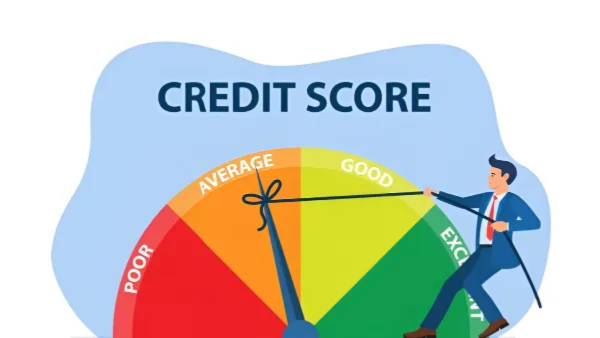How to Improve Credit Score Fast in 2025
There are several ways you can improve your credit score, including making on-time payments, paying down balances, avoiding unnecessary debt and more. But depending on your unique situation, it can be difficult to know where to start.
Whether you’re building credit from scratch or rebuilding after some credit missteps, understanding the factors that go into your credit score can help you determine which steps to take. With that in mind, here are seven ways to improve your credit score, how much impact they’ll have and how long it can take to start seeing results.
1. Best Way to Improve Credit score: Make On-Time Payments
Credit Impact:
Your debt payment history accounts for 35% of your credit score and is the most important credit score factor.
Payment history includes on-time, late and missed payments, all of which are reported to one or more of the national consumer credit bureaus.
Always making payments on time can go the furthest to helping you improve credit.
Actions You Can Take:
Set up autopay for at least the minimum due.
Create calendar reminders and alerts through your online account.
Register for tools that report payments that aren’t traditionally reported to credit bureaus, including rent, utilities, cellphone, insurance and some streaming subscriptions.
How Long It Takes:
You may see a steady rise in your score as you pay your bills on time.
If you make a payment over 30 days late, it will remain on your credit report for seven years and hurt your scores.
The negative impact will diminish over time as you get caught up and pay on time going forward.
2. Fastest Way to Boost Credit Score :Pay Down Revolving Account Balances
Credit Impact:
How much you owe accounts for 30% of your credit score.
Your credit utilization rate—the percentage of available credit you’re using on revolving credit accounts such as credit cards—is a major element.
While some experts recommend keeping your utilization rate below 30%, there’s no hard-and-fast rule. Aim to keep it as low as possible.
Actions You Can Take:
Pay off high credit card balances.
Consider:
Debt consolidation loan
Balance transfer credit card
Debt management plan
Debt repayment strategy like snowball or avalanche method
If you regularly pay in full but have a high utilization rate, pay before the statement date or make multiple monthly payments.
How Long It Takes:
Credit card issuers report balance and payment information to the bureaus once a month.
As you pay down your debt, results may show within a few months.
3. Don’t Close Your Oldest Account
Credit Impact:
Length of credit history makes up 15% of your credit score.
Influenced by the age of your oldest account and the average age of all accounts.
Closing a credit card can hurt your credit score, especially if it’s one of your oldest accounts.
Actions You Can Take:
Use your oldest card every few months or put a small recurring bill on it to keep it active.
If the card charges an annual fee or no longer suits your needs, check with the issuer to see if you can upgrade or downgrade.
How Long It Takes:
Length of credit history builds over several years.
Closing an old account or opening new ones quickly may show negative results soon.
4. Improve Credit Score Naturally : Diversify the Types of Credit You Have
Credit Impact:
Credit mix accounts for 10% of your score.
Managing different types of credit (e.g., cards, auto loan, mortgage) strengthens your mix.
Actions You Can Take:
Let your mix improve over time as needed.
If you’re just starting, apply for a starter credit card and a credit-builder loan.
Don’t take on more debt just to improve your credit mix.
How Long It Takes:
Diversifying credit takes several years as you naturally open accounts.
5. Best Practice to Protect Credit Score: Limit New Credit Applications
Credit Impact:
Every application typically triggers a hard inquiry.
Hard inquiries and new accounts make up 10% of your credit score.
Each hard inquiry can drop your score by a few points; multiple inquiries in a short time can add up.
Actions You Can Take:
Apply only when needed.
Check if lenders offer prequalification with a soft inquiry.
When shopping for loans, complete all applications within a short window (usually 14–45 days) to count as one inquiry.
How Long It Takes:
Hard inquiries stay on your report for two years.
They affect your score for up to one year.
6. Dispute Inaccurate Information on Your Credit Report
Credit Impact:
Incorrect data, like false late payments or balances, can damage your score.
Identity theft may lead to fraudulent accounts and derogatory marks.
Actions You Can Take:
Get your free credit reports.
Check for errors or suspicious items.
Dispute inaccurate info with credit bureaus.
How Long It Takes:
Disputes are usually resolved within 30 days.
Valid corrections or removals are applied to your report.
7. Become an Authorized User
Credit Impact:
Being added to a loved one’s credit card can help if you’re new to credit or rebuilding.
Impact varies depending on how that account is managed.
Actions You Can Take:
Ask a family member to add you as an authorized user.
Make sure the account has a strong payment history and low credit utilization.
How Long It Takes:
